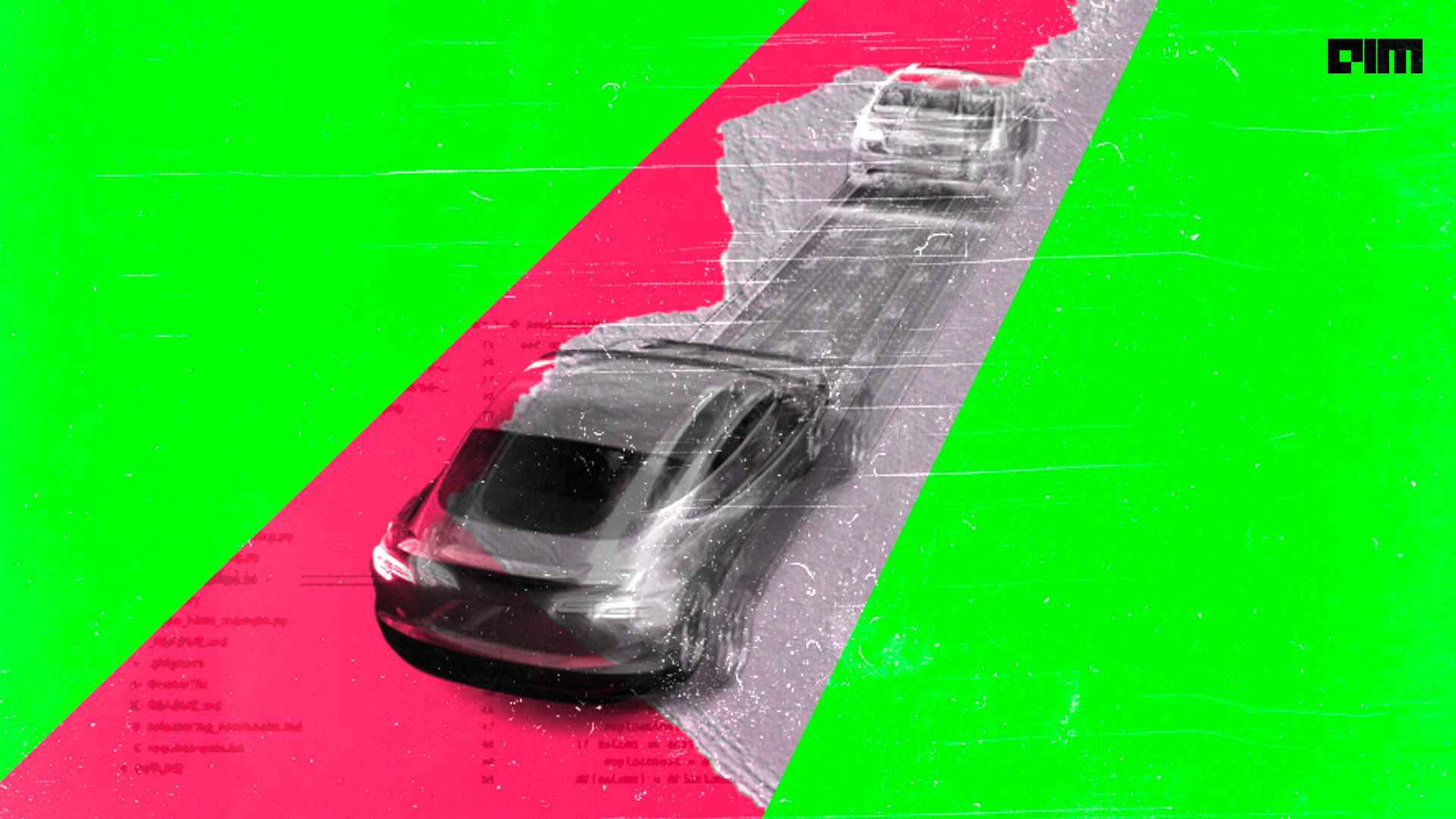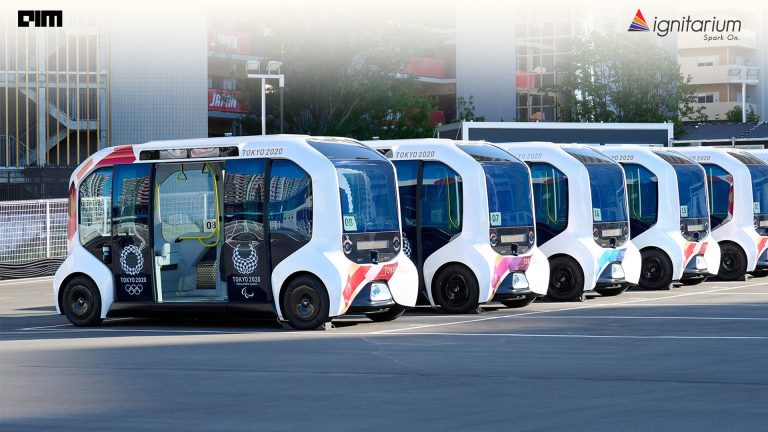Think automotive, and the demand for safety, performance, efficiency and economic viability becomes redundant yet exists in abundance! And when the needs of yesteryear meet with the grandeur of modern-day technologies like artificial intelligence (AI), the possibilities of what can be achieved are limitless.
AI applications in the automotive world go far beyond self-driving cars. The applications are aplenty, from manufacturing to insurance, predictive maintenance to personalised marketing, and driver recognition monitoring to infotainment control. And in many ways, Tesla, Inc (NASDAQ: TSLA) proved its efficacy in the real world.
Though not much from an affordability standpoint, the Texas-based electric vehicle and clean energy company certainly set the benchmark for elegantly designed vehicles that bank on bleeding-edge technology, customer-centricity, and sustainability while addressing the need for speed. Though in no way the first to market, Tesla successfully built compelling mass-market electric cars while ensuring its mass adoption through direct sales and service alongside charging stations that are within consumer reach. They even included energy storage systems for homes and businesses, adding additional value to the already well-thought-out ecosystem. The emergence of these vehicles has also positively impacted the environment, aiding global efforts in reducing carbon emissions.
But their expedition to bring “back to the future” cars to the common Joe and its wide acceptance created a frenzy in the global automotive market, forcing every player to hop onto the “smart technology” bandwagon if they so wish to be relevant. And the implication will blow your mind. The world was introduced to an array of next-gen vehicles that leverage artificial intelligence (AI), smart sensors, and other advanced electronic systems to address some of the long-standing challenges inherent with conventional modes of transport. While companies like BMW, Mercedes-Benz, General Motors, MG Motors, Uber, Cruise, Waymo, and Baidu forayed into building the promising cars of the future, heavy vehicle manufacturers like Navistar and Volvo invested heavily in developing autonomous trucking. And amid this paradigm shift, the Indian automobile industry transcended into a hub for manufacturing excellence and innovation. That’s right, “Bharat” is now on par with automobile juggernauts like the U.S., Germany, China, Japan, France, and Brazil. On an upward trajectory to reach nearly Rs 16.16-18.18 trillion (US$ 251.4-282.8 billion) by 2026, the Indian automobile market is supposedly one of the largest in the world. Technological superiority aside, our vehicles stand by the promise of safety and value for money – and this is applicable across all sub-verticals, i.e., two-wheelers, four-wheelers, and heavy vehicles.
Let’s investigate the top automotive companies in India leveraging bleeding-edge technologies like AI to transform how we perceive transportation.
Smart, fast and practical – The Indian four-wheeler mantra
Recognised as the biggest automobile manufacturing company in India, TATA Motors aims to bring together AI, ML models, geo-spatial and mapping, and the Internet of Things (IoT) to elevate the connected experience for consumers. To foster AI innovation for its connected cars and enhance the human-machine interface, they partnered with Microsoft India in 2017. This collaboration resulted in achieving robust functionalities such as predictive maintenance, advanced navigation, and remote monitoring features, among others, all of which are supported by the tried-and-tested Microsoft Azure Intelligent Cloud.
Additionally, Tata Motors-owned Jaguar Land Rover (JLR) is working on a new kind of touchscreen dubbed predictive touch in liaison with the University of Cambridge. Expected to integrate seamlessly with various sensors and existing touchscreens, this technology leverages a gesture tracker that uses contextual information such as user profile, interface, and environmental design to predict the screen functions that users want to access in real-time. Users simply need to point their fingers at the screen, and the system takes care of the rest!
Similarly, Maruti Suzuki uses RPA, AI, and IoT to automate manufacturing. They have implemented RPA on a large scale to improve system efficiency while reducing errors and malfunctions. NLP-driven chatbots are also on the company’s radar. The company is working on increasing manufacturing volumes and machine health via predictive analytics. They are creating a data lake to aid these efforts and develop smart car features.
Interestingly, both automobile manufacturers meet at crossroads! Tata Group (ELXSI) and artificial perception pioneer AEye are now developing an Autonomous Maruti Ignis-like car named “RoboTaxi.” The level 4 autonomous driving ready vehicle is expected to have most (if not all) AI and self-driving features required to ply on Indian roads. It’s currently being tested keeping real-world scenarios in mind, such as obstacle detection, classification, and tracking, pedestrian crossing, motion sensing, longitudinal and lateral motion control, HD map generation, drive-by-wire, taking inputs from various lidars and radars, cameras, and other sensor devices, environment perception, road model generation, traffic participants, and path prediction, to name a few. These capabilities are built within the Autonomai software middleware platform, which also includes deep learning and AI capabilities.
South Korean automobile giant Hyundai Motor Group is also making great strides in AI with Hyundai India. They’ve launched DAL-e or Drive you, Assist you, Link with you-experience, a cutting-edge customer service robot. It is equipped with cutting-edge artificial intelligence technology such as facial recognition and an automatic communication system based on natural language processing (NLP). In addition, the group unveiled the SUV Venue and Hector SUV, India’s first Internet-connected vehicles that offer AI features such as automatic crash warnings, SOS emergency assistance, and roadside assistance that add great value in delivering a smooth driving experience.
Unlike these three automotive leaders, Mahindra and Mahindra (M&M) is a differentiated aggregate present in over 100 nations with a history to revolutionise every market they enter.
In collaboration with SAP, the engineers at M&M are working on a ground-breaking initiative that replaced physical testing of car motors with virtual testing using AI calculations based on SAP HANA, SAP Predictive Maintenance and service and data reconciliation from various field sources. The initial adjustment was to consolidate all the data onto a single platform, which was accomplished using HANA and SAP Leonardo IoT administrations. AI and machine learning models were also applied to this data to predict that the testing should have been framed on some random motors such that the number of tests performed was reduced and only the most important tests for each motor were completed. This platform will allow M&M to focus on various aspects of assembly, such as quality, support, and throughput.
On a more recent note, M&M launched India’s first vehicle to offer integrated Alexa AI, Amazon – XUV700. It boasts smart features such as navigation, car control, and third-party Alexa skills to play music or audiobooks, control windows, doors and cabin temperature, check tire pressure or fuel level, get directions, check traffic, and find parking. To achieve this, M&M has used the Alexa Auto Software Development Kit (SDK) that empowers automakers to integrate Alexa into their fleet with the added advantage of delivering new features through ongoing over-the-air updates.
AI on two-wheels
Unlike the former segment, the use of AI on two-wheelers is limited, yet companies across the country are trying relentlessly to break the barriers. For instance, Bajaj Auto has unveiled the Bajaj Auto Online Learning tool, an AI-powered and mobile-enabled platform that will provide employees with a unique learning experience. Bengaluru-based bicycle and electric scooter rental company, Yulu has raised $8 million to buy electric two-wheelers from Bajaj Auto. For operational efficiency, the business uses artificial intelligence and machine learning models to estimate the demand and supply of assets and resources. Bajaj Auto employs approximately 100 Universal Robots (UR) co-bots to help maintain its position as the world’s third-largest two-wheeler and three-wheeler manufacturing company.
On the other hand, India’s largest two-wheeler manufacturer, Hero MotoCorp, has implemented a remote support solution that uses smart glasses and augmented reality technology to allow communication between specialists and support divisions (internal/external vendors). Evidently, AI has become an inextricable aspect of everything done in-house.
The two-wheeler EV market is also booming in India at this point. India’s first electric motorbike manufacturer, Tork Motors, unveiled its much-anticipated state-of-the-art electric motorcycle, KRATOS. The fully ‘Made in India’ smart motorcycle is vertically integrated and powered by the company’s unique TORK LIION® Battery pack with Axial flux motor topology for maximum peak power and range. It also features the TIROS® (Tork Intuitive Response Operating Technology), Tork Motors’ unique intelligence system, which plays a crucial role in complementing the rider and the machine, in addition to technical analysis, power management, real-time power consumption, data compilation on every ride, and range projections. Competing with the KRATOS is the Revolt RV 400, India’s first AI-enabled bike that’s packed with robust features such as swipe start geotagging, real-time battery checking, and geofencing. The AI also offers information on the vehicle’s range, and total riding hours, while allowing riders to run real-time diagnostics.
Beyond D2C – The heavy vehicle market
Hinduja’s Ashok Leyland (ALL) has partnered with Aidrivers, the global specialist in AI-enabled autonomous solutions, to develop AI-enabled autonomous vehicles. Their memorandum of understanding (MoU) clearly states that Aidrivers will provide AI-enabled autonomous solutions while ALL will provide vehicle platforms under the terms of the deal. The partners will collaborate to identify target markets and collaboration prospects. Aidrivers delivers self-driving mobility solutions for industrial mobility automation, allowing clients to improve their company operations and deliver more efficient and high-quality services. The agreement calls for the development of self-driving cars, industrial mobility equipment, and other autonomous industrial automation solutions that can benefit fleet operators, logistics companies, and others. The companies will also explore specialised project prospects, cooperative marketing, and joint market access.
There is perhaps no doubt in mind that the Indian automotive industry has come a long way. But this journey is long and arduous, given that our road conditions are beyond machines to predict. Nonetheless, we remain optimistic!


















































































